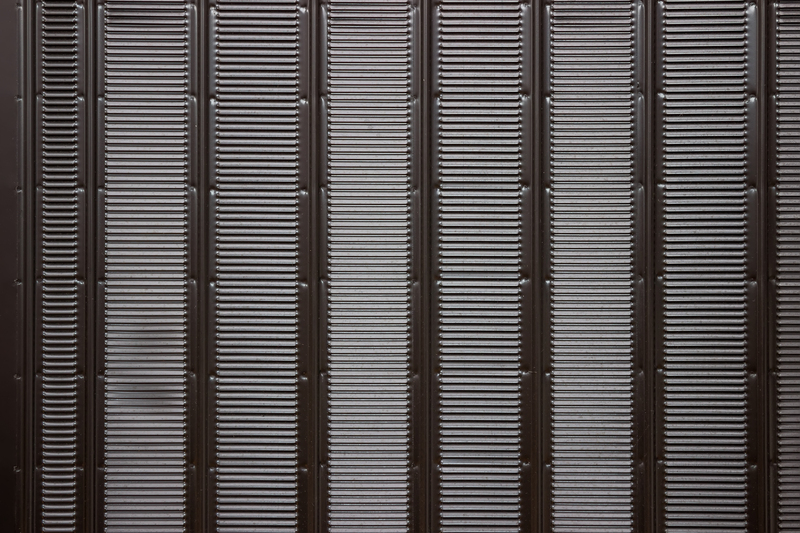Navigate Cleaning Chores with Smart Strategies
Posted on 22/06/2025
Navigate Cleaning Chores with Smart Strategies
Keeping a clean and organized living environment is essential for health, comfort, and productivity. But for many people, cleaning chores can feel overwhelming or time-consuming. The good news is, with the right approaches, anyone can navigate cleaning chores with smart strategies that transform routines from daunting tasks into manageable habits. This comprehensive guide uncovers practical, SEO-optimized tips for mastering home cleaning, enhancing efficiency, and maintaining a sparkling home, stress-free.

Why Smart Strategies Matter for Cleaning Chores
Smart strategies aren't just about saving time, though that's a significant benefit. They help ensure no area gets neglected, tasks are divided equitably among household members, and every action puts you a step closer to your ideal environment. Whether you're a busy professional, a parent juggling multiple responsibilities, or simply someone who wants to make cleaning less of a hassle, using intelligent cleaning strategies enables better results with less effort.
- Reduces stress: Organized plans prevent overwhelming messes.
- Improves efficiency: Know what to do and when.
- Promotes hygiene: Regular, well-planned cleaning keeps germs at bay.
- Saves time: No more indecision or wasted effort.
- Encourages teamwork: Shared responsibilities foster harmony in shared spaces.
Understanding Your Cleaning Needs
Before you can navigate home cleaning chores efficiently, assess your unique situation. Every home and lifestyle requires a different approach. Ask yourself the following:
- What are my high-traffic areas? (Kitchen, bathroom, living room, entryway, etc.)
- How often do specific chores need doing? (Is daily, weekly, or monthly enough?)
- Who uses which spaces? (Children, pets, frequent guests?)
- What are my biggest challenges? (Clutter, dust, pet hair, stains?)
- How much time can I realistically dedicate to cleaning?
By reflecting on these points, you'll have the base for your smart cleaning plan--a strategy that genuinely fits your home and schedule.
Develop a Personalized Cleaning Schedule
1. The Art of Task Division
An effective cleaning schedule embraces task division, splitting household chores into manageable segments. This prevents burnout and maintains momentum. Consider:
- Daily Tasks: Dishes, wiping counters, tidying, making beds, quick bathroom wipes.
- Weekly Tasks: Laundry, vacuuming, mopping floors, changing linens, dusting surfaces.
- Monthly Tasks: Cleaning appliances, washing windows, organizing closets, deep bathroom cleaning.
- Seasonal Tasks: Decluttering, carpet cleaning, garage or basement, outdoor maintenance.
A written or digital schedule keeps everyone on track. Use a shared calendar or cleaning apps to assign and view tasks.
2. Prioritizing High-Impact Tasks
Some chores matter more for overall cleanliness than others. Kitchen and bathroom surfaces, for example, harbor more bacteria than other rooms, so prioritize these if time is short. A strong cleaning strategy means investing time where it counts most.
3. The Power of Micro-Cleaning
Smart techniques include micro-cleaning--tackling small jobs in spare moments instead of letting them pile up. Wipe bathroom mirrors after brushing your teeth, or sweep the kitchen floor after meals. These tiny actions keep spaces tidy without requiring a separate, lengthy cleaning session.
Smart Cleaning Tools and Products
The right supplies greatly enhance your cleaning efficiency. Consider investing in tools designed to save time and effort:
- Microfiber cloths: They attract dust, reduce chemical needs, and are reusable.
- Multi-surface cleaners: Simplify your arsenal with versatile products.
- Vacuum with attachment tools: Reach every nook and cranny.
- Extendable dusters: Tackle cobwebs and high shelves with ease.
- Scrubbing sponges and brushes: Ideal for stubborn stains and grout.
Eco-Friendly Cleaning Strategies
As environmental concerns grow, many households now navigate chores smartly by choosing sustainable alternatives--like vinegar, baking soda, and reusable cloths--instead of harsh chemicals.
Divide and Conquer: Delegation in Cleaning Chores
One of the smartest strategies for managing cleaning chores is involving everyone in the home. Assign age-appropriate tasks to children, allocate specific rooms to adults, and rotate responsibilities. This not only shares the load but also builds good habits and respect for the household.
- Chore charts: Visual reminders enhance accountability.
- Family cleaning sessions: Make cleaning a shared, brief activity.
- Reward systems: Encourage consistency, especially for kids.
Time-Saving Cleaning Techniques
1. The Top-Down Approach
Always clean from top to bottom. Dust and dirt fall downwards, so dust high shelves and light fixtures before tackling floors. This prevents re-dirtying clean surfaces.
2. Zone Cleaning
Focus on one area at a time rather than scattering your efforts. This method fosters a sense of accomplishment and leads to thorough, effective results.
3. "One-Touch" Rule
Handle each object only once as you tidy. For example, clothes go directly into the hamper or closet, not a chair. Mail goes to its designated spot, not left on the counter. These habits greatly cut down on clutter.
4. Set a Timer
Many people procrastinate because they overestimate the time cleaning takes. Set a timer for 10 or 20 minutes, focus on one or two tasks, and you'll be amazed at what you can achieve. Turning chores into a game (beat the clock!) makes it more engaging, too.
Navigating Deep Cleaning Chores
Regular maintenance prevents the need for exhausting deep cleans, but sometimes it's essential. Adopt strategies like:
- Divide deep cleaning over weeks: Clean one room or area intensively per week instead of an entire house in a day.
- Seasonal Checklists: Attach big jobs (like washing curtains, cleaning behind appliances) to spring/fall deep cleaning sessions.
- Enlist help: Consider hiring professional cleaners for annual or bi-annual deep cleans if you can.
Decluttering: The Foundation of Smart Cleaning
The Benefits of Minimalism
It's almost impossible to maintain a tidy environment if you're overwhelmed by clutter. Develop a habit of purging unnecessary items regularly. Remember, every object you own is one more thing to clean. Adopting minimalism means less to organize, dust, and maintain.
Decluttering Steps
- Create Zones: Group similar items to assess duplicates.
- Use the "Four-Box Method": Label containers: Keep, Donate, Recycle, Trash.
- Start Small: Begin with a single drawer or shelf, then gradually tackle bigger spaces.
- Set Decluttering Days: Attach declutter sessions to significant dates (e.g., New Year, end of season) as reminders.
Troubleshooting Common Cleaning Challenges
Motivation Slumps
If you struggle to stick with routines, try:
- Music or podcasts: Make cleaning time fly by with entertainment.
- Before-and-after photos: Visually track progress for satisfaction.
- Invite company: Cleaning with friends or family can transform chores into social time.
Persistent Stains or Odors
Research targeted remedies or natural solutions (such as vinegar for odors, baking soda for stains) rather than relying on ineffective general-purpose products.
Messy Family Members
Clear expectations and open communication help. Display simple checklists in shared spaces so everyone knows their part in the system.
Leveraging Technology: Smart Cleaning Devices
Today's world offers an array of smart devices to optimize cleaning routines:
- Robot vacuums: Save hours by scheduling automated cleaning--even when you're away.
- Steam mops: Sanitize hard floors without harsh chemicals.
- Smart laundry machines: Programmable features help manage loads efficiently.
- Cleaning apps: Organize schedules, set reminders, and track progress with your smartphone.
Smart Organizing Tips to Prevent Mess
- Designate places for everything: Items easily put away reduce clutter and save future cleaning time.
- Invest in storage solutions: Baskets, shelves, and drawer organizers make a big difference.
- Create "landing zones": Near doors for shoes, bags, and keys to corral everyday clutter.
- Label containers for easy identification and accountability.

Consistency: The Key to Smart Cleaning Success
Smart cleaning strategies are only effective when applied consistently. The more regular your routines become, the less time each cleaning session takes, and the more enjoyable your home feels. Remember:
- Habits beat motivation: Set cues to trigger cleaning (after meals, before bedtime).
- Don't aim for perfection every time: Maintenance, not obsessive cleanliness, is the goal.
- Praise progress: Celebrate even small wins to stay motivated.
Conclusion: Smart Strategies Make All the Difference
To navigate cleaning chores with smart strategies is to reclaim your time, peace of mind, and living space. By understanding your household's unique needs, using modern tools, dividing labor, and embracing tidy habits, you can transform cleaning into a quick, manageable part of your day instead of a dreaded, all-consuming ordeal.
Remember, there's no one-size-fits-all approach. By regularly refining your routines and trying new strategies, you'll discover the system that fits your lifestyle best. Take the first step today towards a cleaner, happier home--armed with these smart cleaning solutions for a stress-free domestic life.




